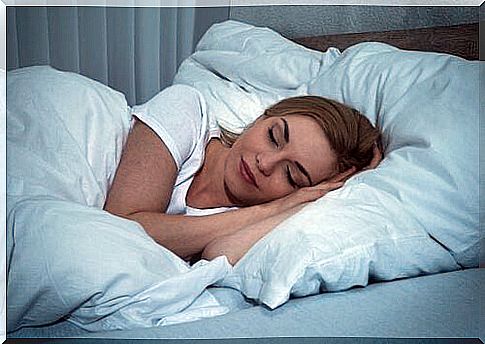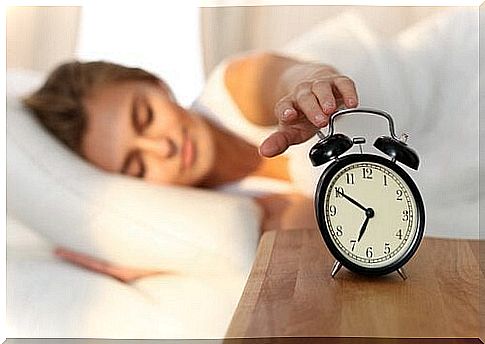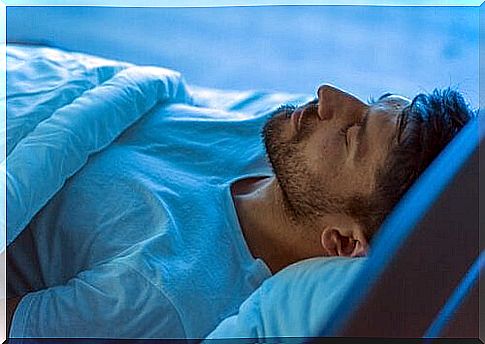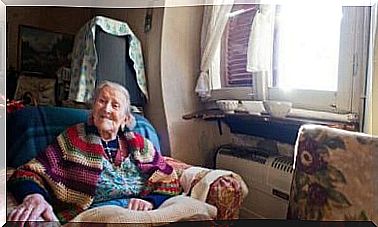Sleep Hygiene: 7 Guidelines For Better Sleep

Many factors influence how we sleep, from the room temperature to what we ate for dinner. Sleep hygiene studies these factors and how they affect our sleep. It includes a series of recommendations that encourage a healthy lifestyle and advocate habits that lead to better sleep.
Sleeping is one of the most important activities we do in life. It is important to wake up with a renewed, rested body and not to have trouble falling asleep. Want to know how to achieve this? Follow these seven basic guidelines for better sleep.
Sleep is a routine activity that benefits from stability. Therefore , your body will benefit from you waking up and going to bed at about the same time, even on the weekends. It is pointless to sleep only five hours Monday to Friday and then sleep eight hours Saturday and Sunday.
It may be true that we generally sleep more during childhood and less at old age, but all adults actually need different amounts of sleep. Most require 6-8 hours of sleep each night, but this varies depending on personal and work aspects.
Therefore, it is a good idea to observe how you sleep for a few weeks, and thus gain an understanding of how much sleep you need to feel rested.

Quality and quantity are just as important when it comes to sleep. It is not the same to go to bed at six in the morning as at eleven in the evening, even if you end up sleeping for seven hours both times. The body is programmed to know that it is time to get up at sunrise.
The body releases melatonin in the evening, which is why we then feel tired and sleepy. But if you are constantly forced to change your circadian rhythm, you will pay a high price. In fact, it has been proven that people who work at night can develop serious cardiovascular problems, which can lead to heart attacks.
When you think of energizing foods, you probably think of coffee. But this is not the only drink that activates us: teas and soft drinks can also prevent us from falling asleep. You need to be careful about what you eat and drink, especially near noon.
In the same way, chocolate is an activating substance that can make it difficult for you to fall asleep or make you wake up early. It is also best to avoid alcohol consumption or reduce it as much as possible.
In general, we get drowsy from carbohydrates and wake up from protein. In addition to being easier to digest, it is therefore also recommended to eat a salad instead of a steak if you want better sleep.
Sports and exercise will help you improve your shape and avoid a sedentary lifestyle. It also makes you relaxed and counteracts tensions. Another way to promote better sleep is to exercise regularly with moderate intensity. Sports and exercise not only keep us in shape, but also make it easier to release clouds of anxiety that can disrupt our sleep.
However, it is important to allow two hours to pass between training and bedtime. Exercise generates endorphins that keep your body alert, and going to bed with a high heart rate is not recommended. It is best to let your body relax before going to bed.

In addition to waiting a couple of hours after training, you should follow the same guidelines after watching an action movie or an exciting TV show. These activities stimulate the levels of mental activation. Several experts have shown that audiovisual activities increase the risk of insomnia, mostly in people between 18 and 32 years.
Therefore, it is best to do the exact opposite: choose relaxing activities before bedtime to promote better sleep. Examples include background music, a hot bath, light reading or breathing exercises. Your body will thank you the next day.
Guidelines for sleep hygiene say that if you have anxious thoughts or clouds of anxiety that keep you awake, it is best to get up and talk to your partner instead of brooding over these thoughts for hours.
If you are worried about tasks you need to remember to do the next day, write them down in a notebook and “free” your mind from these responsibilities.
The environment in your bedroom can affect your sleep quality. Think of:
- A calm and relaxed atmosphere: it is advisable for all members of the household to go to bed at the same time. If you are in bed and ready to fall asleep but can hear your child’s computer or the football match on the TV in the living room, your peace will be disturbed.
- Not too cold, not too hot: it is good to keep the thermostat around 21 degrees Celsius, but rather a few degrees lower than higher. Switching on a dehumidifier a few hours before bedtime can be good for humid environments.
- It is best to sleep in total darkness: electrical appliances can make this difficult as screens and LED lights can affect the REM phase or melatonin emissions with their light.

All of these habits to promote better sleep have very positive effects on both the quality and quantity of sleep. However, they will not solve insomnia on their own. Look at these recommendations as a complement to other treatments.









